Online Integrity
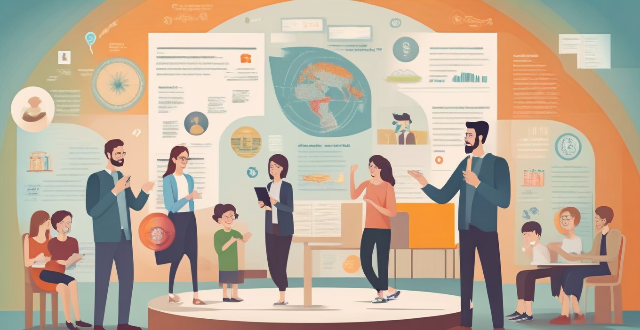
How has the COVID-19 pandemic affected issues of academic integrity, especially with online learning ?
The COVID-19 pandemic has significantly impacted academic integrity in the education sector, particularly due to the shift to online learning. The increased opportunities for cheating during online examinations and plagiarism are major concerns. Difficulty in maintaining academic integrity standards, potential for misunderstandings and miscommunications, and strategies to address these challenges are also discussed.

What is academic integrity ?
Academic integrity is a fundamental principle governing the conduct of research, teaching, and learning in academic institutions. It encompasses values and ethical standards promoting honesty, fairness, respect, and responsibility among students, educators, and researchers. The goal is to maintain trustworthiness and credibility by adhering to high ethical standards. Core values include honesty, fairness, respect, and responsibility. Key aspects are avoiding plagiarism, fabrication, cheating, multiple submissions, and collusion. Violating academic integrity can lead to loss of reputation, disciplinary action, legal consequences, diminished career prospects, and ethical implications. Adhering to academic integrity promotes a fair and just academic environment.

What are the consequences of violating academic integrity principles ?
Violating academic integrity principles can lead to serious consequences on both individual and institutional levels, including academic penalties, damage to reputation, difficulty gaining acceptance into programs or securing employment, emotional distress, and potential loss of accreditation for institutions. It is essential for students to understand the importance of maintaining academic integrity to protect their personal and professional futures, as well as the reputation of their educational institutions.

What are the long-term effects of breaches in academic integrity on one's career ?
The long-term effects of breaches in academic integrity can be severe and far-reaching, including damaged reputation, limited career opportunities, and potential legal consequences. It is essential for students, researchers, and educators to uphold the principles of academic integrity to ensure the success of their careers and the integrity of their respective fields.
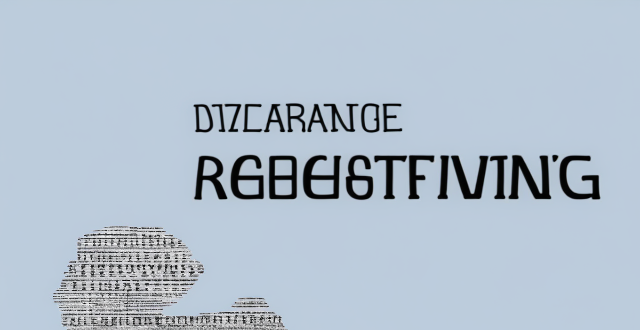
How can students maintain academic integrity in their studies ?
The text discusses the importance of maintaining academic integrity in education and outlines several ways for students to do so. It emphasizes understanding the concept of academic integrity, adhering to school policies, citing sources properly, avoiding plagiarism, being honest in assessments, respecting intellectual property rights, maintaining confidentiality, reporting incidents of misconduct, and seeking help when needed. The text concludes that maintaining academic integrity is crucial for students to achieve success in their academic pursuits and beyond.

In what ways does academic integrity relate to professional ethics ?
**Academic Integrity and Professional Ethics: An Interconnected Relationship** The concepts of academic integrity and professional ethics are fundamentally interconnected, sharing principles like honesty, fairness, responsibility, respect, and courage. Academic integrity lays the groundwork for professional ethics by instilling foundational skills such as critical thinking, research integrity, and ethical decision-making. These skills transition from academia to profession, building reputations for reliability and trustworthiness. Therefore, promoting academic integrity is crucial not only for the academic community but also for the broader professional world.

Are there any cultural differences in perceptions of academic integrity ?
The perception of academic integrity can vary across cultures due to differences in values, beliefs, and practices. In individualistic cultures, academic integrity is often viewed as an individual responsibility, while collectivist cultures place more emphasis on group harmony and cooperation. Power distance can also influence perceptions of academic integrity, with high power distance cultures being more reluctant to report instances of academic dishonesty. The concept of time can also play a role, with monochronic cultures prioritizing efficiency over quality, while polychronic cultures focus on building relationships. Attitudes towards rules and regulations can also vary across cultures, with rule-based cultures viewing academic integrity as a set of strict rules, while relation-based cultures view it as something that depends on the relationship between individuals. Understanding these cultural differences can help educators design effective strategies to promote academic integrity among diverse student populations.
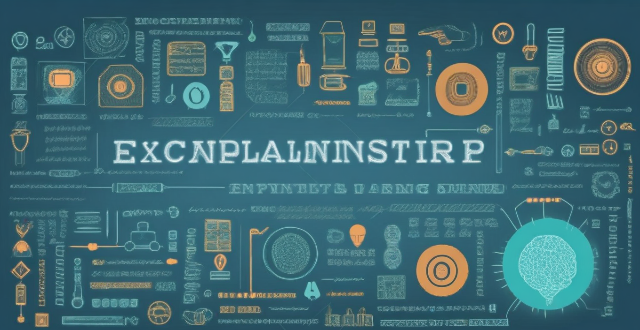
How does academic integrity relate to the concept of intellectual property ?
The text explores the relationship between academic integrity and intellectual property. It defines academic integrity as the core values of scholarly work, including honesty, trust, fairness, respect, and responsibility, which are essential in research, teaching, and publishing. Intellectual property, on the other hand, refers to legal protections that give creators exclusive control over the use of their creations of the mind. The intersection of these two concepts is discussed in terms of respect for original work, protection of ideas, promotion of innovation, and ethical considerations. Both academic integrity and intellectual property laws stress the importance of respecting original work and protecting ideas. They also promote open access and sharing of knowledge while ensuring responsible conduct of research. The text concludes that upholding academic integrity contributes to a robust system of intellectual property that benefits society as a whole.

What is the role of peer pressure in maintaining or undermining academic integrity ?
Academic integrity is a commitment to honesty, trust, fairness, respect, and responsibility. Peer pressure can play a positive role in maintaining academic integrity by encouraging ethical behavior, promoting collaborative learning, and providing support and encouragement for students. However, peer pressure can also undermine academic integrity by promoting cheating and plagiarism, disrupting collaborative learning environments, and stigmatizing help-seeking behavior. It is essential to recognize the potential impact of peer pressure on academic integrity and work to foster an environment that supports ethical behavior and discourages cheating and plagiarism.
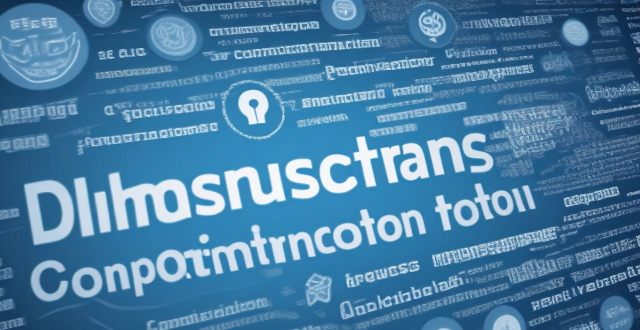
How do communication protocols ensure data integrity and security during transmission ?
The text discusses the role of communication protocols in ensuring data integrity and security during transmission. It outlines mechanisms such as checksums, sequence numbers, acknowledgments for maintaining data integrity, and encryption, authentication, and secure protocols for ensuring data security. The article emphasizes that adhering to these rules allows devices to communicate reliably and securely over networks.
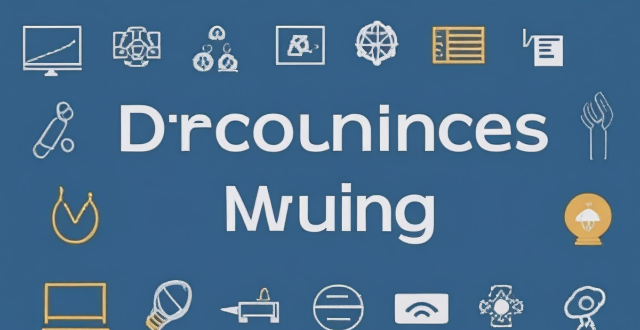
What is the difference between collaborative work and collusion in terms of academic integrity ?
The text discusses the differences between collaborative work and collusion in academic settings. Collaborative work is defined as a transparent process where individuals share ideas, resources, and skills for a common goal, distributing credit fairly and adhering to ethical standards. In contrast, collusion involves deceitful actions like plagiarism or falsifying data, aiming for unfair advantage and often resulting in severe penalties and reputational damage. The distinction is crucial for maintaining academic integrity and promoting an environment of honesty and transparency.
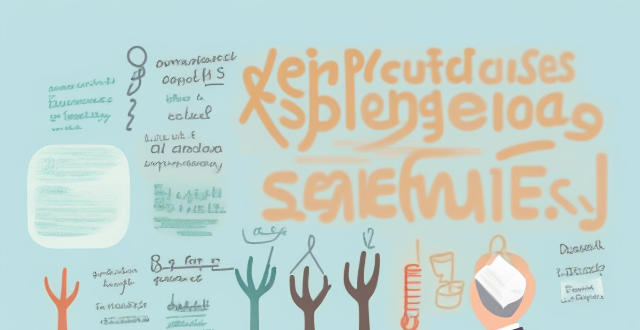
How can students with English as a second language be supported in understanding and applying academic integrity standards ?
The text discusses the importance of supporting students with English as a second language (ESL) in understanding and applying academic integrity standards. It outlines four key strategies for doing so: providing clear explanations, accessible resources, open communication, and extra support. Clear explanations should cover what constitutes academic dishonesty, the consequences of violations, and how to avoid dishonesty. Accessible resources such as glossaries, guides, and videos can help ESL students understand these concepts better. Encouraging open communication between students and instructors can address concerns and questions about academic integrity. Providing extra support through tutoring services, workshops, and peer mentoring programs can further assist ESL students in adhering to academic integrity standards.

How does technology impact academic integrity, particularly regarding plagiarism ?
Technology has significantly impacted academic integrity and plagiarism in the educational world. The rise of plagiarism detection software has increased awareness and improved the quality of student work but may also lead to false positives and overreliance on technology. Evolution of writing and research tools makes information more accessible yet poses risks like plagiarism opportunities and lack of critical thinking. Social media and collaborative platforms facilitate collaboration and networking but can also contribute to plagiarism risks and distractions. It is crucial for educators to promote ethical practices while leveraging technology's benefits for learning and collaboration.

Why is academic integrity important in education ?
Academic integrity is crucial in education as it promotes honesty, builds trust, ensures fairness, cultivates respect, and develops responsibility. It prevents damage to reputation and erosion of confidence in research, while also ensuring actual learning outcomes. Educators must reinforce these principles to create a culture that values honesty and excellence in scholarship.

Which website is considered the best for buying books online ?
The text discusses Amazon as the best website for purchasing books online due to its user-friendly interface, wide range of books, competitive pricing, fast shipping and delivery options, customer reviews and ratings, and easy returns and refunds.

How do I find buy one get one free offers online ?
To find buy one get one free offers online, use coupon websites, check store websites, follow brands on social media, join loyalty programs, search online forums and discussion boards, and set up deal alerts.
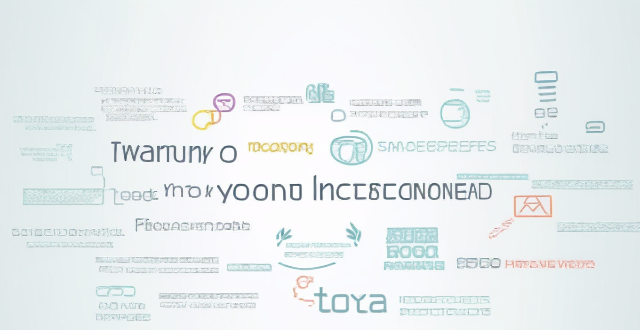
How can I protect my personal information online ?
In today's digital age, protecting your personal information online is crucial. To safeguard sensitive data, one should use strong and unique passwords, keep software and systems up-to-date, be careful with public Wi-Fi networks, be wary of phishing attacks, and limit the amount of personal information shared online. These steps can significantly reduce the risk of having personal information compromised online.

What are the benefits and drawbacks of using online curriculums in home education ?
The article discusses the advantages and disadvantages of using online curriculums in home education. On the positive side, online learning offers flexibility, a wide range of options, personalized experiences, exposure to diverse cultures, and cost-effectiveness. However, it also presents challenges such as limited social interaction, technical issues, lack of hands-on learning opportunities, overreliance on technology, and concerns about quality control and accreditation.

What are the benefits of shopping through global online platforms ?
The text summarizes the benefits of shopping through global online platforms. The key advantages include increased access to products, competitive pricing, convenience, variety of payment options, easy price comparison, reviews and ratings, direct shipping, cross-border shopping, and environmental friendliness. These benefits make online shopping an attractive option for consumers around the world.

How can I ensure that my online activity is private ?
Online privacy is a significant concern, and ensuring it requires proactive measures. Use strong passwords and two-factor authentication, be cautious with personal information, use encrypted communication channels, keep software up to date, manage privacy settings, use VPNs, be wary of phishing attacks, browse incognito/private mode, and clear your digital footprint. These strategies can enhance online privacy and reduce the risk of exposing sensitive information.

Can you suggest some online shopping sites specifically for luxury goods ?
The article provides a list of seven online luxury shopping sites, each offering unique features for an enhanced shopping experience. These platforms include Farfetch, Net-a-Porter, MatchesFashion, MyTheresa, Ssense, Moda Operandi, and 24S, all of which cater to a global audience with high-quality products from various designers. Each site offers exclusive collections, personalized services, and sustainable practices, making them ideal for purchasing luxury goods online.
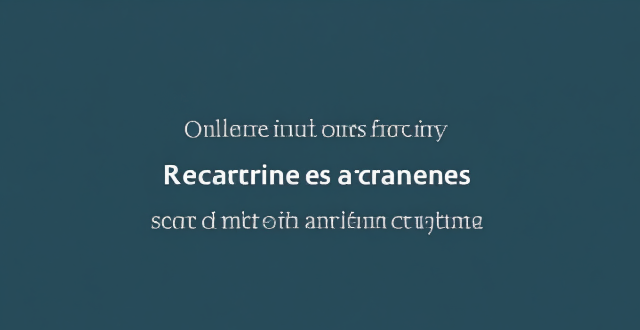
Are there any free online learning resources available for advanced learners ?
This text provides information about free online learning resources for advanced learners, including MOOCs, OERs, online forums and communities, as well as podcasts and videos. It mentions platforms like Coursera, edX, Udemy, Khan Academy, MIT OpenCourseWare, OpenStax, Project Gutenberg, Stack Exchange, Reddit, Quora, TED Talks, various podcasts, and YouTube channels.

What are some of the most secure online shopping platforms ?
Secure online shopping platforms are essential in protecting personal and financial information. Amazon, eBay, Walmart, Target, Best Buy, and Etsy are some of the most secure online shopping platforms available today. These platforms use advanced security measures such as SSL encryption and two-factor authentication to protect users' data. Additionally, they offer various payment options and excellent customer service. By choosing these reputable platforms, you can enjoy a safe and convenient online shopping experience.
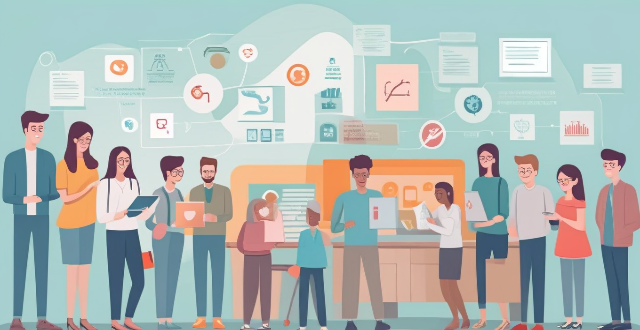
How can schools address the issue of contract cheating, where students pay others to complete their assignments or exams ?
Addressing contract cheating in schools is crucial for maintaining academic integrity. Effective measures include using advanced plagiarism detection tools, educating students on academic integrity, encouraging open discussions, providing support services, and collaborating with parents and guardians. These strategies can deter students from engaging in contract cheating and promote a culture of original work.

What is the process of buying insurance online like ?
The text provides a detailed guide on how to buy insurance online. It outlines the process in eight steps: researching and identifying needs, selecting an insurance provider, getting a quote, reviewing policy details, completing documentation, making payment and receiving policy documents, confirmation and follow-up, and activating coverage. The benefits of buying insurance online include convenience, comparison, transparency, and speed. However, precautions such as ensuring security and legitimacy of the website, and fully understanding the policy terms should be taken.

Can I take online fitness instructor courses ?
Yes, you can definitely take online fitness instructor courses. In fact, there are many reputable organizations that offer online certification programs for aspiring fitness instructors. Here are some key points to consider: ## Benefits of Online Fitness Instructor Courses 1. **Flexibility**: Online courses allow you to learn at your own pace and on your own schedule. This is especially beneficial for those who have other commitments such as work or family responsibilities. 2. **Cost-effective**: Online courses are often more affordable than traditional in-person training programs. You can save money on travel expenses and accommodation costs. 3. **Wide range of options**: There are numerous online fitness instructor courses available, covering various areas of expertise such as yoga, Pilates, strength training, and more. 4. **Access to expert trainers**: Many online courses are taught by experienced and certified fitness professionals who share their knowledge and expertise through video lectures, interactive quizzes, and practical assignments. 5. **Continuous learning**: Online courses provide an opportunity for continuous learning and development. You can revisit the course materials anytime and stay up-to-date with the latest trends and techniques in the fitness industry. 6. **Career advancement**: Completing an online fitness instructor course can enhance your resume and open up new career opportunities within the fitness industry. ## How to Choose an Online Fitness Instructor Course When selecting an online fitness instructor course, consider the following factors: - **Accreditation**: Ensure that the course is accredited by a reputable organization or institution. This will ensure that the program meets industry standards and provides valuable credentials upon completion. - **Course content**: Check the course outline and make sure it covers all the necessary topics related to fitness instruction, including anatomy, physiology, exercise techniques, programming, and safety guidelines. - **Instructor qualifications**: Look for courses taught by experienced and certified fitness professionals who have a proven track record in the industry. - **Learning resources**: Ensure that the course provides access to high-quality learning resources such as video lectures, e-books, practice exercises, and interactive quizzes. - **Support and feedback**: Choose a course that offers regular support and feedback from instructors or mentors throughout the program. - **Community engagement**: Look for courses that provide opportunities for engagement with other students and fitness professionals through forums, discussion groups, or social media platforms. - **Pricing**: Compare the pricing of different online fitness instructor courses and choose one that fits your budget while offering quality education and resources.

How can individuals protect their privacy rights online ?
In today's digital age, protecting your online privacy is crucial to safeguarding your personal information from potential threats and misuse. Here are some key steps you can take to ensure your privacy rights are upheld while browsing the internet or using online services: Use strong passwords and two-factor authentication, be cautious with personal information, use encrypted connections, keep software up-to-date, review privacy settings regularly, and educate yourself about online scams and phishing attempts. By implementing these strategies, you can significantly enhance your online privacy and reduce the risks associated with sharing personal information on the internet.
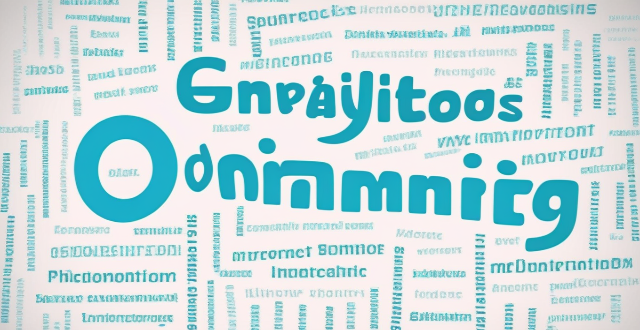
What is online privacy and why is it important ?
The text discusses the definition and importance of online privacy, which is the ability to control personal information when using the internet. Online privacy protects sensitive data such as browsing history, location, communications, and personal details from being accessed, collected, or used without consent. It is important for protecting personal information, allowing control over personal data, enabling freedom of expression, building trust in digital services, and ensuring economic benefits. Best practices for online privacy include using strong passwords, keeping software up-to-date, being cautious on social media, avoiding public Wi-Fi, reviewing privacy policies, and monitoring financial statements for signs of fraud or identity theft.
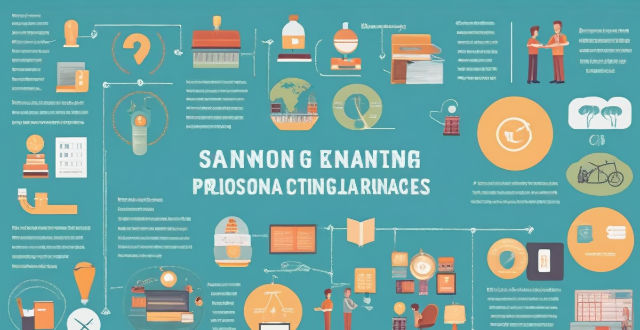
How can I find reliable online learning resources for my subject ?
When searching for online learning resources, it'sWhen searching for online learning resources, it's learning goals and then priorit it's crucial to first identify your learning goals and then prioritize credible sources like academic institutions and professional organizations. Evaluate content quality by checking author credentials and ensuring the information is up-to-date. Utilize reputable online learning platforms and join online communities for recommendations. Look for accredited courses and take advantage of trial periods to assess course quality before committing financially.

What resources are available online for studying history ?
This article provides a comprehensive list of online resources for studying history, including digital libraries and archives, online courses and lectures, encyclopedias and dictionaries, virtual museums and exhibits, and forums and discussion groups. The resources offer access to historical documents, photographs, lectures, articles, artifacts, and discussions with fellow enthusiasts. The article emphasizes the importance of utilizing these resources to gain a deeper understanding of historical events and periods.